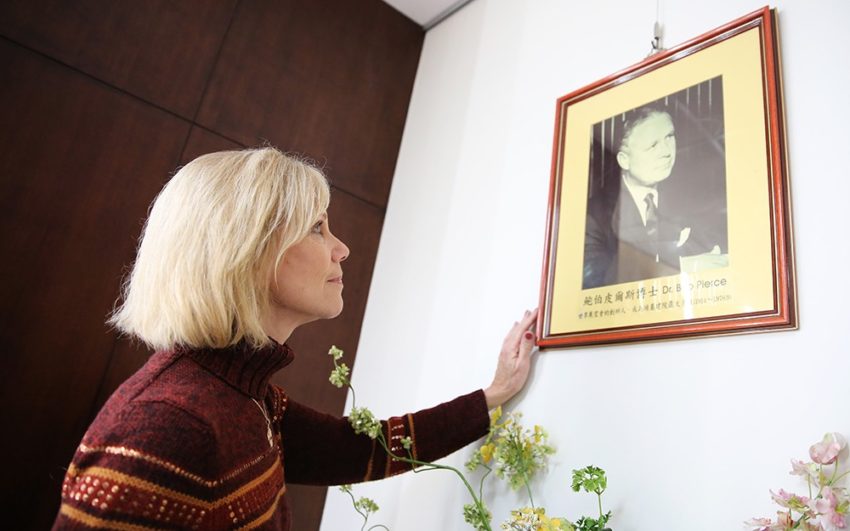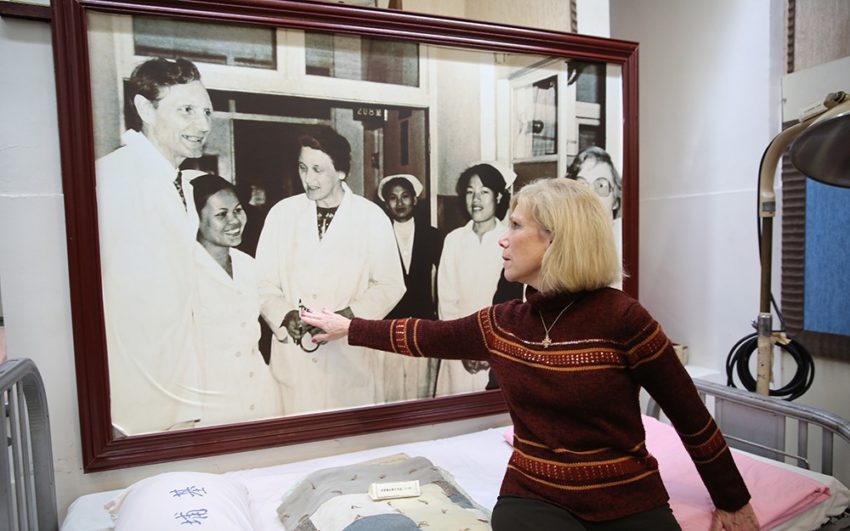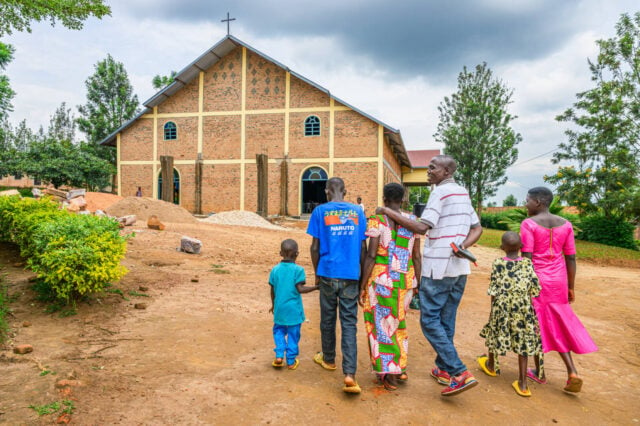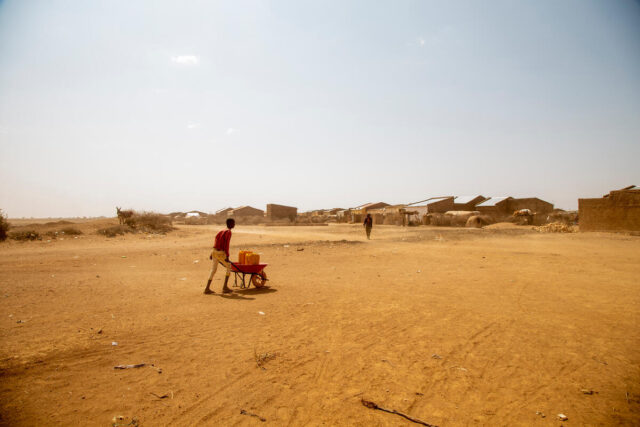Recently I received a letter from someone who had just read Man of Vision, the book I wrote about my family and the founding of World Vision and Samaritan’s Purse. While the book celebrates the miracles God did through my dad’s ministry, it is also very honest about the challenges and heartaches my family faced, in large part because my father traveled for ten months out of every year for 20 years.
There is no doubt that his long absences took a great toll on his health, put a strain on my parents’ marriage, and left my sisters and I without the benefit of truly knowing our daddy. But the greatest tragedy of our lives was the sudden death of my older sister, Sharon, in 1968. She was only 27.
Moved with compassion by the revelations of God’s mercy and grace amid our human imperfections and struggles, the reader wrote:
I hope God over the years has been able to heal and fill every place in your heart where your father’s absence left a wound. I hope God has been able to bring peace to the losses you’ve carried, (especially) with the death of your sister.
I could have simply answered with a resounding “Yes! He has.” But I felt the best way to reply was to share the following experiences from my recent trip to Taiwan.
Connecting with the past in Taiwan
My father began supporting various missionary projects in Taiwan in the early 1950s, and in 1965, I traveled with him to see some of the children’s homes, hospitals, and schools World Vision had helped build and was supporting. I had not been back to Taiwan since, and even though I knew that most of the things I remembered would be long gone, I asked to revisit some of those historic places.
On the first day, I was taken to a busy suburb of Taipei to see Lo Sheng (Happy Life) Sanatorium. Today it is a six-story, full-service hospital — but it was on this very site that my father helped Lillian Dickson, founder of Mustard Seed International, and the government of Taiwan build and maintain a leper colony, clinic, and church.
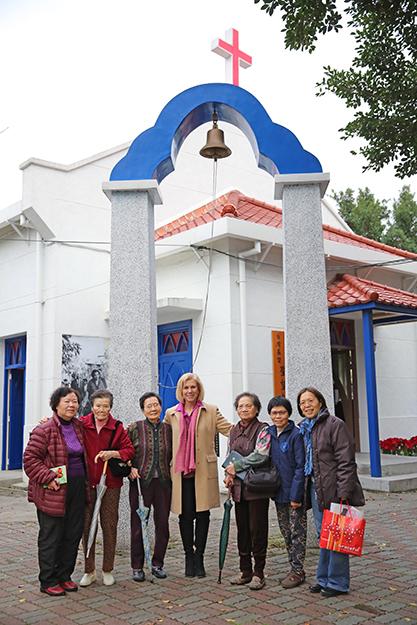
When I visited as a 15-year-old, the church stood on a hill surrounded only by trees, lush gardens, and a cluster of single-story, red brick buildings where hundreds of men, women, and children suffering from leprosy — also known as Hansen’s disease — lived, worked, and worshipped.
But this past January, when I walked into the modern emergency room entrance with its shiny floors and white-coated doctors, I felt completely disconnected. Surely this had nothing to do with my father or the lepers he had cared so passionately about!
My interpreter, Charlotte, and I went up to the top floor to meet with the administrators of the hospital. “I’m here because long ago my father worked with Lillian Dickson to build a leper clinic here,” I explained a bit sheepishly, once we had all sat down and been served tea. I felt a bit foolish taking up their valuable time with my stroll down memory lane.
“We know,” they answered, nodding and smiling. “Your father helped found this hospital. We need to know more about him. Can you send us pictures and stories for our history?”
I was truly taken aback but pleased to realize that the part my father had played decades before had not been forgotten.
Meeting extended ‘family’
They offered to show me the wards, and I followed, expecting a tour of the hospital. We entered a side wing and passed room after room of elderly people lying in beds surrounded by modern medical equipment. Some were clearly near death.
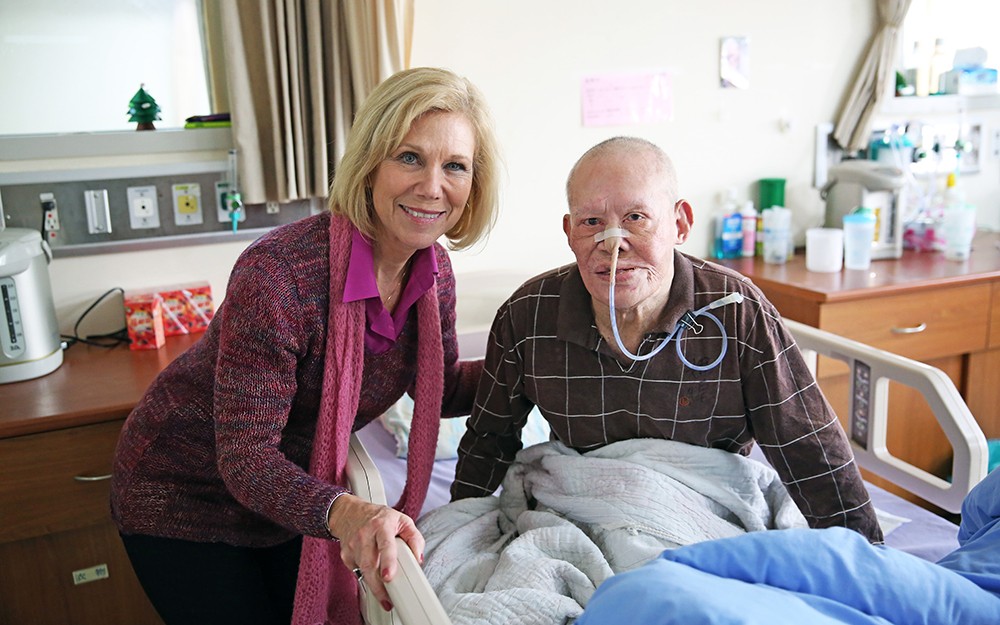
We stopped at one room where a man was sitting up, looking at us with a big smile on his face. With a shock, I realized that he had no nose or ears or legs. In fact, none of them did.
I looked at the administrator in amazement and she nodded. “These are your father’s lepers. They never left here. They have lived here all their lives, and now we are caring for them with all the love and dignity we can give them. They are our family.”
“And mine,” I wanted to say. I entered the room, and the man who was smiling said something.
“He wants to know if you’re the daughter,” Charlotte said, nodding yes at him.
He nodded back and said, “You look just like your mother.” I felt myself slipping into another time and place as I remembered that Mama had been here with Dad — in 1968! No one had prepared me for this.
A reunion 40 years in the making
As we left the ward, my host said, “There are some others who are waiting to meet you.” As though in a dream I followed her out a back door and straight into the past. In a beautifully kept garden setting, I saw the steepled church my dad helped build and one of the original single-story brick buildings that had been there when I visited in 1965. There were seven women waiting to greet me, all beautifully dressed and groomed. All elders of the church. All former lepers.
Amazed, I gave each one a hug. (Charlotte would later tell me that one of the ladies commented that she was amazed that we were not afraid to hug them.) Then a voice said, “We were so sad to hear about your sister.” The ladies were looking at me expectantly, tears in their eyes, but honestly, I had no idea what they were talking about. My younger sister Robin was fine when I left home.
Then it struck me — they were talking about Sharon! They had waited 40 years to express their condolences, and I felt my eyes begin to well with tears as the reality of what was happening hit me. “We all cried and prayed for your family when we heard the news,” someone added, as they all nodded in agreement.
I sat with those dear saints for about an hour as they showed me pictures and shared stories about my dad, telling me about the many ways he had blessed their lives. “Oh, he was so handsome,” they kept saying over and over, making me smile. They were right. He was.
An unforgettable New Year
It was January on this latest visit, and Chinese New Year was fast approaching. Everywhere I went, I saw advertisements for the 10-course meals Chinese families traditionally share. But as the ladies explained, they had been so desperately poor back then that they never got to celebrate the traditional New Year’s feast.
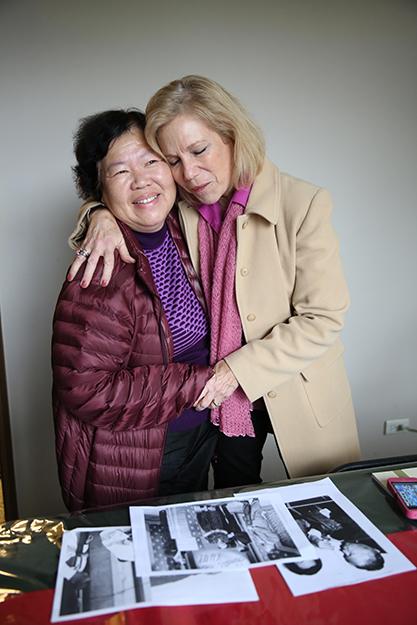
“It was a sad time for us,” explained Wu Xi-Mei, a 67-year-old woman who had been brought to the leprosarium when she was 10. “There was never any extra money for Christmas presents or to celebrate the New Year as others did. Our families had rejected us because we were lepers, and no one remembered us. Many people would get so depressed that they would take their lives.
“Then one year, your father came and heard about the situation. So he declared that we would have a banquet to celebrate Christmas and New Years. Everyone dressed up, and we had a feast! And,” she added, “there were presents for everyone. I remember holding the box in my hand and opening it to find a new necklace. I had never had a gift before, and my hands trembled as I put it on.” She touched her neck. “I still remember what it felt like to put that necklace on.”
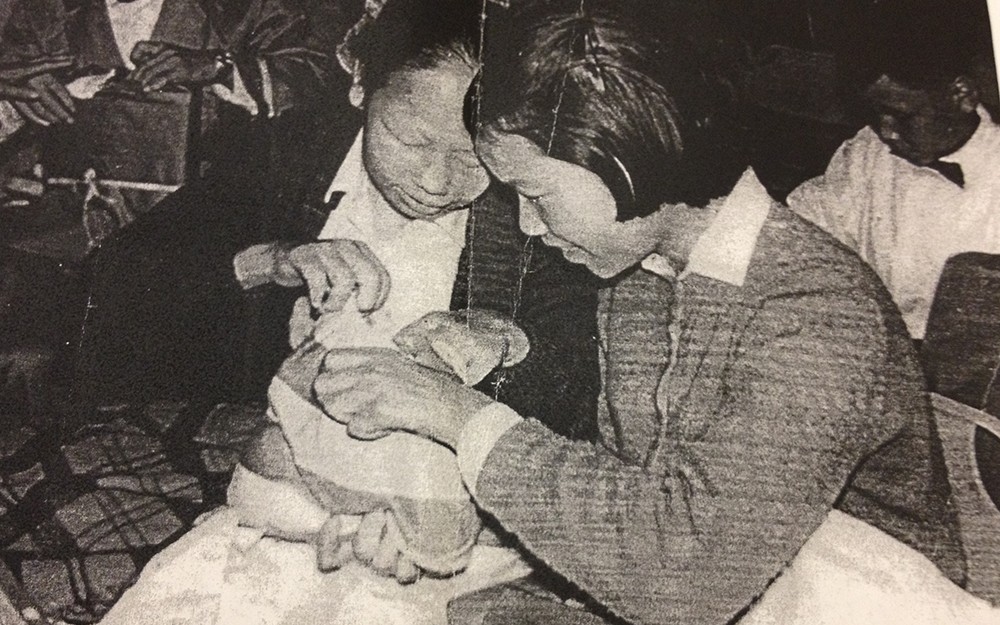
Wu Xi-Mei was eventually cured of Hansen’s disease, as were all the other ladies, and trained to be a nurse right there at the hospital. She met a wonderful man (also a cured leper), married, and had healthy children and grandchildren. Today, she is retired and spends her days in the wards I first visited, sitting with the elderly. “I see them into glory,” she told me with a brilliant smile.
An unexpected blessing
As our time ended, I thanked the women for sharing their lives and stories with me. Never had I experienced such an amazing or unexpected blessing. But God was not done.
“Meeting you has been a great gift from God to me,” I began, searching for a way to express how I was feeling. “I never really knew my dad, because he was gone most of my childhood, but now …”
One of the ladies spoke up, interrupting my thoughts. I glanced at Charlotte, who for once looked like she was at a loss for words. Then she said, quietly, “She says that they owe you an apology. They want to ask you to forgive them for taking your daddy away from you.”
I am happy God used my dad to bless your lives. And now he is using you to bless mine.—Marilee Pierce Dunker
I was stunned. Never had I felt so humbled or — the only word I can think of is loved. Finally, I found my voice and said, “Please. Don’t apologize. And don’t feel badly for me. I am happy God used my dad to bless your lives. And now he is using you to bless mine. Thank you for helping me know my father as you knew him.”
The little seeds that grew
The kingdom of heaven is like a mustard seed, which a man took and planted in his field. Though it is the smallest of all seeds, yet when it grows, it is the largest of garden plants and becomes a tree, so that the birds come and perch in its branches.—Matthew 13:31-32
World Vision has always been a child-focused ministry, seeking ways to give the abandoned, homeless, and abused children of this world the safety, nurture, love, and godly encouragement they need to grow into healthy and caring people who will pass on that blessing. Each little life is like a mustard seed being planted for the glory of the Lord, and as I travel the world, I am always blessed to see the beautiful and fruitful gardens that have sprung up from those seeds — even after World Vision has moved on.
Most people associate World Vision’s earliest work with the children of Korea. What many people do not know is that my father, World Vision founder Bob Pierce, began supporting children’s homes and other missionary outreaches on the island of Formosa (more commonly known as Taiwan) at about the same time. In 1952, World Vision began raising funds for missionaries like Lillian Dickson, founder of Mustard Seed International, the Oriental Mission Society (now called One Mission Society), and other medical and church organizations.
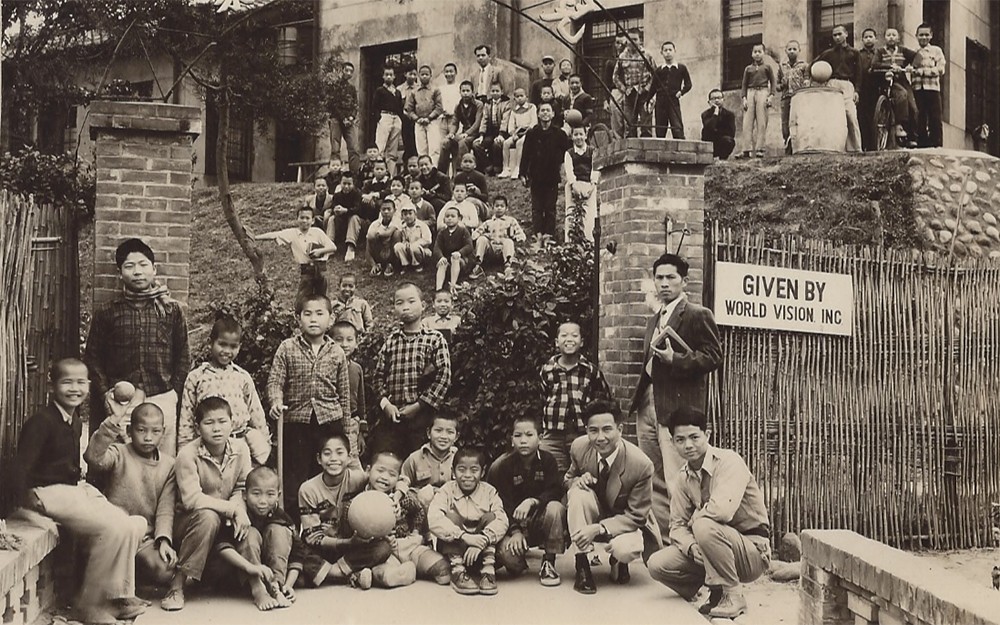
Through child sponsorship and other supportive measures, World Vision helped plant the seeds for more than a dozen orphanages, hospitals, and homes for lepers and the handicapped that are still meeting those needs today.
The Mustard Seed Children’s Home on the outskirts of Taipei was founded by my father’s dear friend and mentor, Lillian Dickson. For many years it was a World Vision-sponsored orphanage. I visited there in 1965 and remembered it well, especially the stone chapel where my father often preached.
On my recent visit to Taiwan, the rolling, green hills that once surrounded the campus had been replaced by an endless maze of city streets and cement buildings, and I wasn’t sure what we would find when we turned down the narrow alleyway leading to the property.
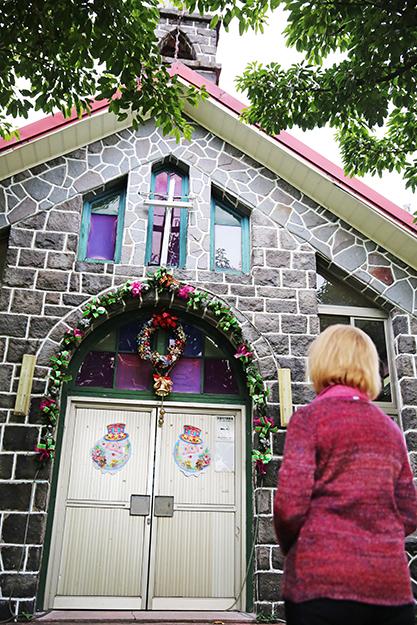
Suddenly, the noise of the city seemed to melt away as we drove out of the shadows and into a quiet, sun-lit oasis. Impossible as it seemed, the old stone chapel was still standing guard over the cluster of long, one-story buildings — where, for over 50 years, children had been lovingly sheltered, fed, and nurtured in the Lord.
Several Mustard Seed staff members were waiting to greet me with hugs that said although we had never met, we were family. It happened to be my birthday, and the director, Anne Wu, surprised me with a cake. I am still trying to figure out who let the cat out of the bag!
Then we went outside to walk the campus. A wall of pictures celebrating Lillian Dickson’s life and ministry brought back the stories my dad used to tell of the children she had rescued from the streets and city jails. Back then, there were no orphanages equipped to care for children who had run away from abusive situations and were living on the streets. Authorities would often round them up and put them in jail where they had no hope of escaping their adult abusers.
For me, the history of World Vision is always fascinating. I love to see the places where God used us to make a difference. But here at the Mustard Seed Home, the seeds we helped to plant are still bearing fruit! The orphanage is full to capacity with 56 children living in the cheerful dorm rooms. For many of the children, this will be the only home they will ever know.
The older children were in school off campus. But I could hear the sound of children’s voices as we walked towards the gated preschool and kindergarten that is still run onsite. And then there they were — the ongoing evidence of a work of compassion that had changed the reality of life for hundreds of unwanted children and stood the test of time.
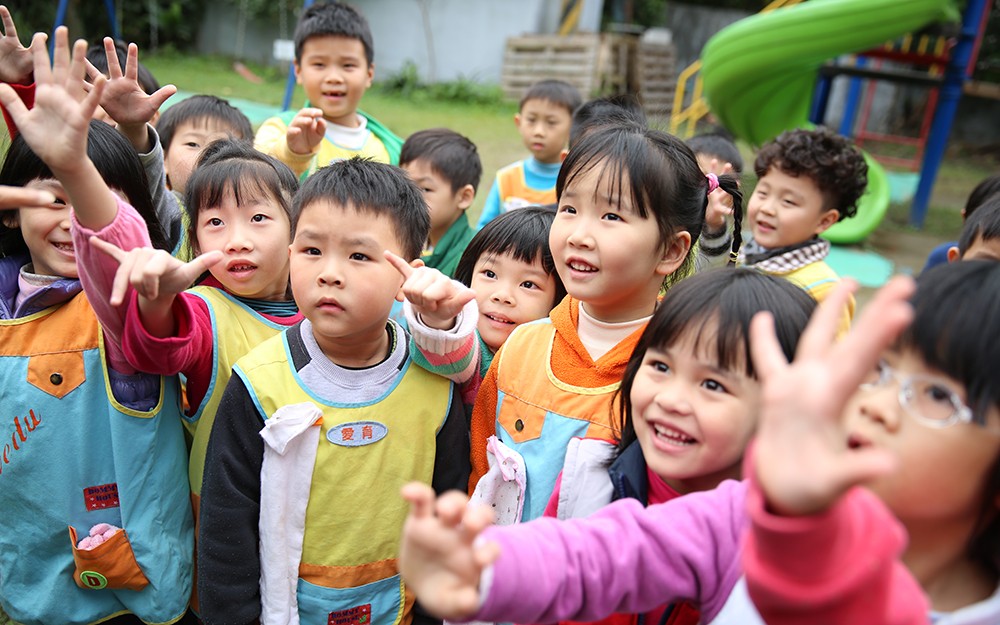
Sometimes faith is a blank check
On the fourth day of my visit to Taiwan, my World Vision hostess, Charlotte, and I took the bullet train through the heart of the island to the gorgeous mountains around Sun Moon Lake. The sparkling crater lake is now one of the most desirable tourist destinations on Taiwan, but when I came here with my Dad in 1965 it was best known for being General and Madam Chiang Kai-shek’s summer home. I wish my 50-year-old memories were not so hazy! But I do remember that Dad and I had the honor of worshiping in Madam Chiang’s private chapel while we were there.
Two special women joined Charlotte and me for this two-day excursion: Tiffany Wang, a member of the World Vision Taiwan board, and Bonnie Wurzburger, World Vision International’s vice president of marketing. I was thrilled when they offered to make the trip with me. It is always more fun to share an adventure with friends!
After spending the night in a hostel by the lake, our small group drove the additional hour to Puli, a bustling city in the heart of what was once headhunter country. Our destination was the famous Puli Christian Hospital, where I was told I would find two things of great interest — a Bible in which my father had written a special message and a blank check.
Roots of faith
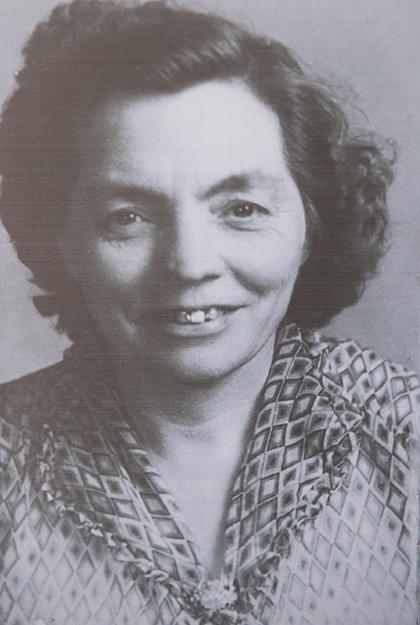
The story of Puli Christian Hospital is really the story of missionary Lillian Dickson’s unrelenting faith in a God who could not fail. In her 1958 book, These My People, Lillian shared the amazing story of how God built the first clinic out of bricks and faith.
The land [for the hospital] cost about $600, which I hoped I could pay by calling in all my resources. We would build first with bamboo, for that was cheap.
Unfortunately, when they arrived to start building, Lillian discovered that the government had imposed new regulations and they would have to build with bricks. It would cost four times as much as expected.
When they told me I had to build with bricks, I said to myself, “Bricks without straw,” thinking ruefully of the state of my finances (referring to Exodus 5:1-9). Then I thought of those doctors questioning the mothers about the little ones who have died (from tuberculosis, polio, leprosy, and other preventable diseases). No one cares because they are just “aborigines.” But we who are Christians should care and should help.
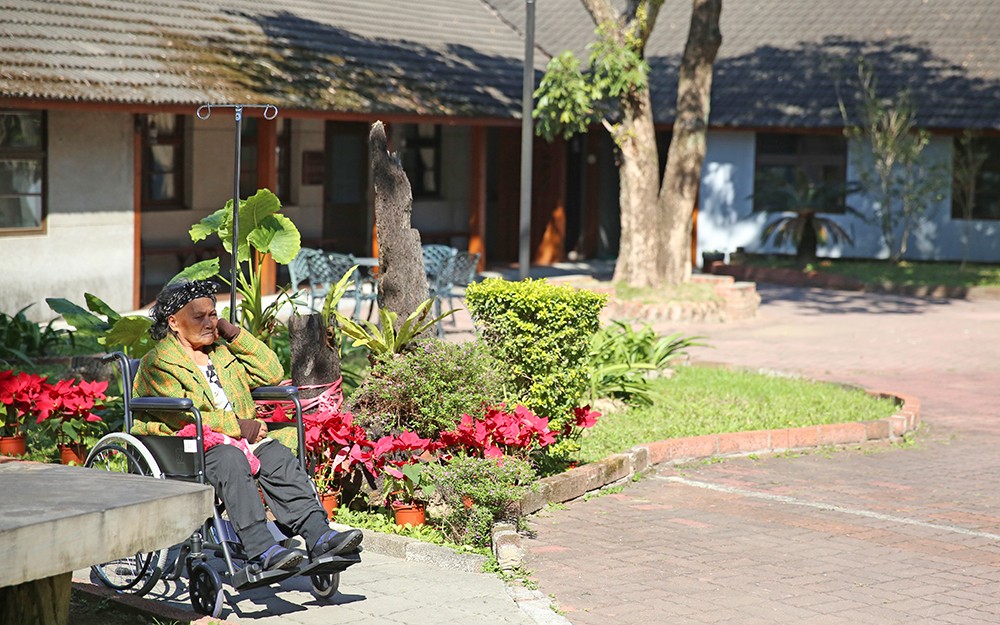
So we went on building even though we hadn’t enough to finish, even if it would always be a burden to buy medicines and to keep the clinic staffed. The need was there and we knew that it was the Lord’s will that it be met. I had a Chinese Christian doctor (Dr. Wai) who would give the clinic three days a week and more if I wanted and I knew thousands would come.
We made cupboards to hold the drugs, [believing that] somehow the medicines would come as we needed them. And we had six beds for in-patients.
“You will have those beds filled the first day,” warned Dr. Bjarne, a Norwegian doctor working with us.
‘Beyond the horizon of the world’
As so often seems to happen, God waited until the last possible moment to send in the cavalry.
I was making plans to send word into the mountains that our opening date would be January 16 (1955) … when Bob Pierce and Dr. Frank Phillips of World Vision came and offered to help us. They were the only ones who offered to help — the only ones who stood beside us and believed God would bless this work that was being started to take care of the mountain people.
“What can we do to help you?” The words fell like balm on our hearts! This was surely the Lord who had sent these dedicated men to help with this great need which was beyond the horizon of the world!
For many years, World Vision sent money every month to pay for medicine to fill the empty cupboards that Lillian had built “in faith.” We paid the salaries of the doctors and nurses who would so lovingly serve the people of the mountains. And when the needs outgrew the buildings made from “bricks without straw,” Dad committed to building a beautiful three-story hospital.
“Claim the hill, build a hospital with a cross on the top, so God’s Kingdom can be seen over the valley,” he is quoted as saying.
So, you may be asking yourself, just where does a blank check come into all this?
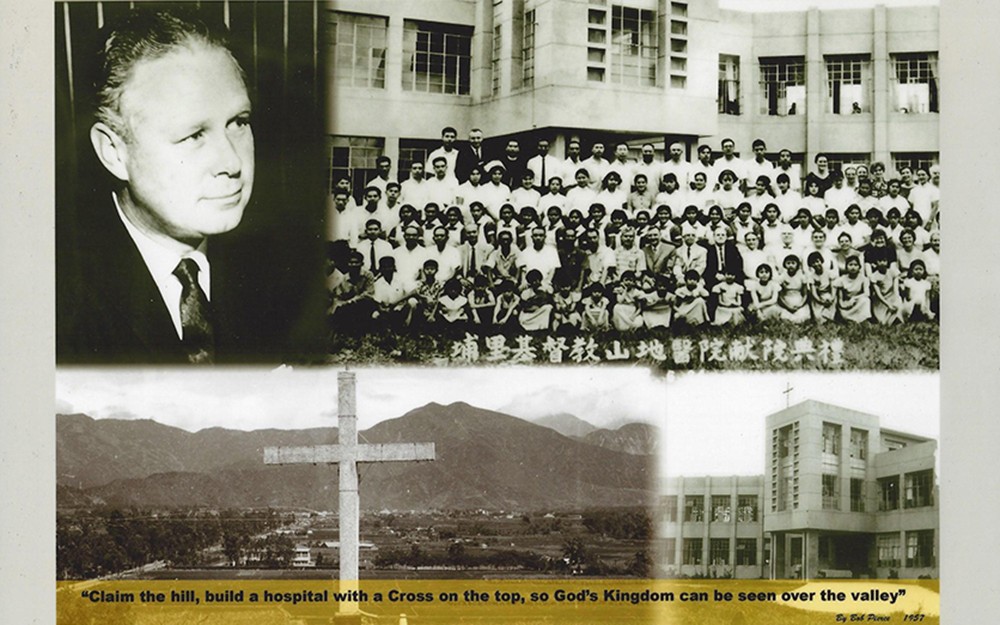
After agreeing to raise funds for the hospital, my father gave Lillian and Dr. Wei a blank check, telling them to write in what they needed. I am fairly certain that if they had tried to cash it the next day that check would have bounced! But, as he has done countless times throughout World Vision’s history, God cashed the check.
Now, Puli Christian Hospital has 600 beds, and the famous blank check is kept in a special case as a constant reminder that sometimes faith can look like a blank check. But in reality, it is simply God’s way of saying, “Fill in the amount. No matter how much or how little, I am good for it!”
‘A need beyond the horizon of the world’
Lillian Dickson, missionary to Taiwan, once used these words — “A need beyond the horizon of the world” — to describe the suffering of the people of Taiwan when she lived there in the mid-20th century.
Working for World Vision these past 14 years, I know exactly how she felt. The needs of this world are overwhelming to me, stretching far beyond the horizon.
My recent time in Taiwan was a wonderful reminder of what can happen when just a few ordinary people decide to step out in faith and trust God to do what He does best — the impossible.
God did not fail Lillian and the people of Taiwan, and he will not fail us. He will send the provision on time. He will fill the empty cupboards. He will cash our blank checks.
And he will sustain us in our “little walk of faith.”
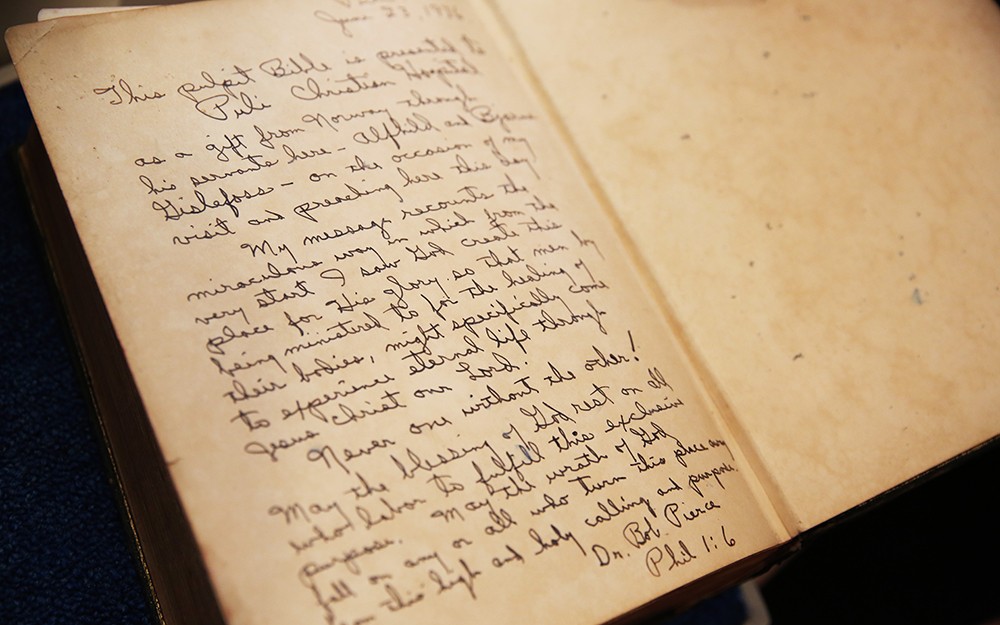
In closing, here’s what I wrote to the lovely individual who inspired all of this with her thought-provoking comment:
As I hope these stories reveal, God has indeed “healed and filled every place in my heart” and given me great love and appreciation for both of my parents. I feel blessed beyond measure to have inherited this great legacy of faith and ministry, and I pray every day that my life is a tribute both to them and the God they served so well, if not perfectly.
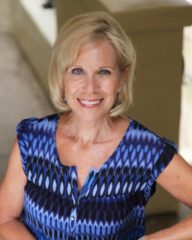
Marilee Pierce Dunker travels the world as an ambassador for World Vision, the organization her father, Bob Pierce, founded in 1950. Like he did, she shares stories, pictures, and personal reflections, bearing witness to the extraordinary ways God is using his people to share the gospel and care for the poor.
Visit World Vision’s Speakers Bureau site to request Marilee or another World Vision speaker to present at your upcoming event.
